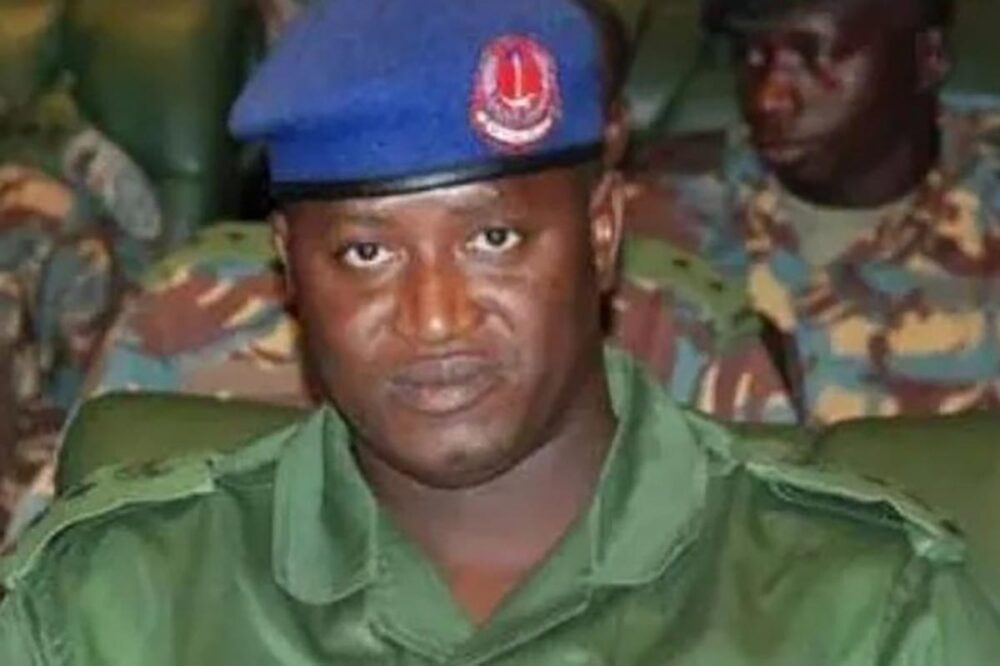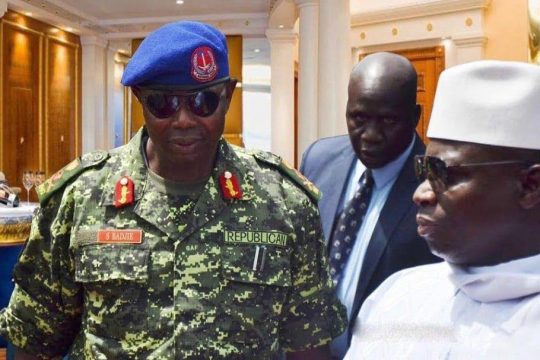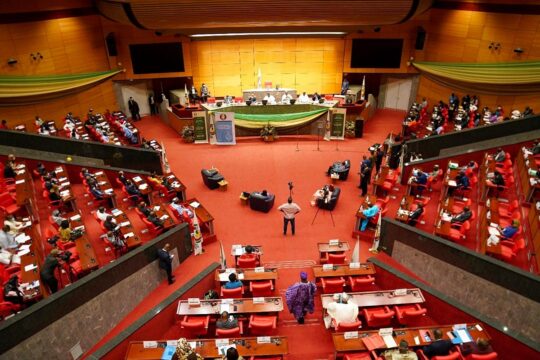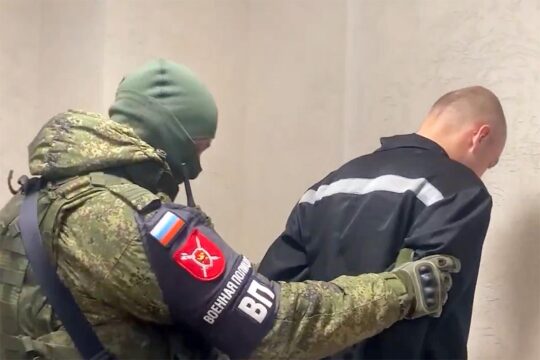Former Gambian military fugitive Bora Colley turned up on August 9 around midnight at the Yundum Barracks, the country’s biggest military encampment over an hour’s drive from the Gambian capital Banjul, where he was immediately arrested and detained.
Colley left with Yahya Jammeh, former president of The Gambia who has been in exile in Equatorial Guinea since 2017. After the fall of Jammeh, some soldiers followed him whilst another faction fled to Guinea Bissau. Colley was part of the latter, according to our sources in Foni and to media reports. A day after Jammeh left, there was no trace of Colley or of other notorious Junglers, including Nuha Badjie, Sanna Manjang, Nfansu Nyabally, Modou Jarju alias Rambo, Saul Sambou, and Solo Bojang.
Over the years, Colley and some others got closer to the Gambian territory. They are said to have moved into the southern Senegalese region of Casamance, where they have been living the past years. The Foni region, in the West Coast Region of Gambia from which most of them hail, borders Casamance. According to our sources there, the reason many of the fugitives chose this location is because of the protection they received from the people of Casamance.
Justice Info cannot confirm whether these fugitives have ever crossed into The Gambia, but our sources in Foni say they do have “access to their wives”. Though Colley may have only turned himself in now, his location may have been an open secret to many people residing in the Foni region.
Security concerns
After Colley turned himself over to the authorities, The Gambian government has been bashed for its security failures, namely by human rights activist Madi Jobarteh. Colley has been mentioned at the Gambia’s truth commission and in the trial of Gambian Bai Lowe in Germany, for his involvement in killings and enforced disappearances of nine Mile 2 death row inmates in 2012, the killing of Intelligence chief Daba Marenah and others, tortures of persons interrogated before a panel for their alleged participation in a foiled coup in March 2006, and the death of journalist Deyda Hydara in 2004. He is on the list of wanted persons Gambian authorities issued in 2018.
The question on everyone’s lips is how Colley, a high-profile alleged perpetrator, was able to enter The Gambia unnoticed. According to Jobarteh, his undetected entry exposes the security fragility of the country. “This goes directly to the political and security leadership of the country in ensuring effective security sector reforms which should have produced a more efficient and professional security apparatus. The fact that such a dangerous man could enter the country and then spend days inside the country unnoticed requires an urgent review of the security system for drastic changes to take place. This incident clearly demonstrates that the much talked about security sector reforms are not a success,” he told Justice Info.
Why return now?
“Our national security is solid, and then the fact that he came into the country is not due to lack of vigilance. The border is very porous. We have about 900 kilometers, and for most of it there is no security presence. So, he was in his house and then when he knew that very soon the search would get him, he was forced to surrender himself,” Chief of Defense Staff Lieutenant General Mamat Cham said at a government event last month attended by Justice Info.
“You can run but you cannot hide. You can use the port of borders to enter but I think what needs to be clear is that when he entered, the State was closing in on him through surveillance, and he knew that he had to hand himself in,” Minister of Information Ismaila Ceesay also remarked.
Jobarteh added: “But what makes the issue also more of a national security concern is that Colley was a key member of the death squad of Jammeh. Hence the question is, why did he decide to return to the country now? What are his plans? Is Jammeh involved in this decision and for what objective? The military says they are investigating him, and I hope they will carry out a thorough and impartial investigation and be transparent enough to share the report with the public.”
Detained without charge
Since his surrender on August 9, Colley has not been notified of the criminal charges against him. The military has not revealed much regarding its plans, though they have set up a joint panel that consists of the Gambia Armed Forces, The State Intelligence Services, The Gambia Police Force and the Ministry of Justice. This panel is tasked with looking into the circumstances around his return.
“We welcome the arrest of a former suspected member of a death squad on August 9, a step towards accountability for the crimes committed under the former president Yahya Jammeh and justice for the victims,” said Amnesty International’s West and Central Africa office. “We call on the government of Gambia to respect the right to a fair trial without recourse to the death penalty”, it added.
But the risk seems to be rather that he fails to face justice in his own country. In December 2021 another Jungler, General Saul Badjie, to whom Colley was answerable along with other Junglers including some returned from Equatorial Guinea where they were with former president Jammeh. But they were detained at the Mile 2 Prison without charge, leading to a High Court Judge ordering their release in February 2022.
“Colley is a deserter from the armed forces, so he is still accountable to his command for what he has done,” said the Chief of Defense Staff at an August 16 Ministerial Town Hall meeting in presence of the Ministry of Defence. “We want to use this forum also to call upon the other dissidents that are hiding in the woods and maybe living a very pitiful life. Let them return and then subject themselves to whatever charges or allegations are made against them. The Gambia is a rule of law country. Nobody’s life will be put in jeopardy, but you will have to answer to the law. And for the citizens, we are in full control of security. Whether General Colley or anybody else comes in, it should pose no concern for them.”
Trial of an ex-“Jungler” postponed in the US
The trial of former “Jungler” Michael Sang Correa that was scheduled to start on Monday September 16, has been postponed. Correa is facing charges in the United States of torturing persons interrogated for their alleged participation in the March 2006 failed coup.
His lawyers filed two motions. The first asks that the charges against him be dismissed, given that the US government would not grant immunity to Correa’s two key witnesses – Jungler Alieu Jeng and former deputy director of the State intelligence agency Momodou Hydara. The second asks that his lawyers be allowed to travel to Gambia to collect depositions. The Judge dismissed the first motion and granted the second, pushing the trial to April 7, 2025.
According to his lawyers, “Mr. Correa intends to present a defence that he was coerced and under duress when he allegedly committed the offences in the indictment.” Correa was arrested and detained in the United States in September 2019 for overstaying his visa. Although he has been mentioned for his participation in other serious crimes, including murder and forced disappearances, the State Department in 2020 charged him solely with counts of torture and conspiracy to commit torture.







